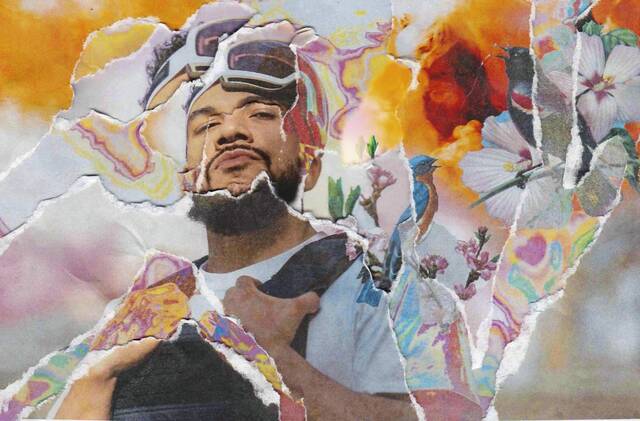
As Pittsburgh activist, podcast host and rapper Farooq Al-Saïd was writing what became his new record, “Revolutionary But Gorgeous,” he was going through a dark period in his life.
“I had come to a point where I’d cry as part of my workout and keep moving, but I didn’t feel like I had purged everything,” said Saïd, the moniker he uses on the mic. “I hadn’t started going to therapy yet, so my natural outlet was always the gym.”
Saïd, who moved to Pittsburgh after growing up in Toronto, began writing — not a journal necessarily, but streams of conscious thought that also rhymed.
“In one of the album’s songs, ‘Inshallah,’ I said, ‘I tap into my deepest pain to keep me sane,’” he said. “I wanted a creative outlet that I could use as a metric to see how far I had come from being in this dark place.”
From the pain of losing a baby daughter to the stress of working within the social systems surrounding political activism, “Revolutionary But Gorgeous” pairs Saïd’s socially-conscious themes with soulful beats from producer Hobbes Duendes. The album’s first single, “5 Pillars,” matches Saïd’s flow with a slinky guitar line and funky percussion.
The album’s cover reflects the emotional turmoil within, a torn collage of Saïd, flowers, psychedelic splashes and a giant explosion in the background.
Saïd spoke with the Tribune-Review about creating the new record. This interview has been edited for length.
Question: What is your favorite song on the new record and why?
Answer: “2004,” hands down. That record, to me, is just the type of hip hop I grew up on. It’s raw, it’s edgy, it’s clever and it’s super-street. One of my favourite rhyme patterns I’ve ever used is on that record. It’s revolutionary but gorgeous. The punchlines are tactical and honest. I was able to revisit my younger self, recapture some of that youthful energy, and introduce it to my current train of thought.
[embedded content]
Q: You’re one of the co-hosts of the Pittsburgh-based podcast “This Week in White Supremacy.” Has being part of that, and engaging in regular public discussions about racial, social and economic issues affected the way you approach your music?
A: I’ve always made socially conscious music. I just did it my way. If anything, the advantage of growing older and wiser made me more formidable. Being in this space of activism has just refined my wit and sharpened my tongue because, in many areas, my contemporaries and sometimes opponents are politicians and academics.
Q: What has been the biggest challenge in working on this new album?
A: I feel like this is the most powerful thing I’ve ever created. The dichotomy is I made the album in response to emotional trauma. The challenge is, at times, it’s tough to talk about the subject matter. Artistically I know what I made and why I made it. I lost my daughter before I made this album, and I don’t want to use that as a plot point to cheapen what we went through, but it happened, and this was one of the ways I dealt with it. A lot of the things I had been experiencing were traumatic. I knew that if I didn’t create something to combat that, I would be spiraling without stopping. So the album was my biggest challenge and triumph.
Q: What is the most important message you want to convey with “Revolutionary But Gorgeous”?
A: My message is that you can feel safe in vulnerability and even be empowered by it. Revolution is rarely pretty, but liberation is gorgeous.
Patrick Varine is a Tribune-Review staff writer. You can contact Patrick by email at pvarine@triblive.com or via Twitter .


